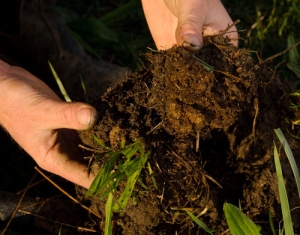Healthy soils are the foundation of global food production and ought to become a key agenda item in public policy, says the FAO.
Moujahed Achouri, Director of FAO’s Land and Water Division, made the statement while addressing the third Global Soil Week in Berlin this week.
Global Soil Week brings together more than 550 participants from 78 countries working on sustainable soil management and land governance.
“Soils are essential for achieving food security and nutrition and have the potential to help mitigate the negative impacts of climate change,” says Achouri, who added that pressures on soil resources are reaching critical limits.
In addition to sustaining 95% of food production, soils host more than a quarter of the planet’s biodiversity, are a major source of pharmaceuticals, and play a critical role in the carbon cycle, he adds.
The current level of soil degradation – estimated at 33% globally – is “alarming” and has the potential to threaten food security and send many people into poverty, Achouri says.
Sustainable soil management, in turn, can contribute to the production of more and healthier food. FAO called on the international soil community and policy makers to work together to reduce soil degradation and restore already degraded land.
Global Soil Week 2015 coincides with the International Year of Soils, which aims to raise awareness about the often-unrecognized benefits of soils to human health and sustainable development.
This year’s Soil Week highlights the need for including soil issues in the UN’s Sustainable Development Goals (SDGs), currently under discussion.
“If humanity’s overarching need for food security and nutrition, climate change mitigation and sustainable development is to be met, soil resources have to be given the global attention they deserve,” says Achouri.



















